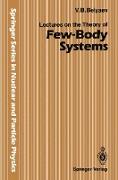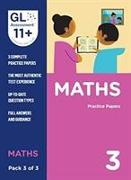- Start
- Lectures on the Theory of Few-Body Systems
Lectures on the Theory of Few-Body Systems
Angebote / Angebote:
Nuclear physics is undoubtedly a many-body problem. A nice introduction into the present status of this subject may be found in the comprehensive mono graph by P. Ring and P. Schuck "The Nuclear Many-Body Problem" (Springer, Berlin, Heidelberg, New York 1980). However, in view of the many challenging problems that remain to be tackled, it is sensible to consider systems with few particles as model cases. These provide the basis for solving the sophisticated many-body problem posed by intermediate and heavy nuclei. Out of the large number of existing nuclear systems, few-particle, that is few-nucleon, systems can be singled out to form a special group. This is possi ble because a comparatively small number of degrees of freedom (or dynamic variables) is required for a complete description of such systems. In these Lectures we utilize this to study few-body systems in great detail, in particular three-and four-body systems. In contrast to published monographs on the subject, we deal not just with nucleonic degrees of freedom but consider also non-nucleonic degrees of freedom. The range of approaches and methods examined exceeds the scope of other textbooks. The Lectures are organized in such a way as to guide the uninitiated reader through the essentials of solving the dynamical equations of few-body systems directly towards practical applications. Formally oriented readers might like to supplement their reading with texts such as "The Quantum Mechanical Few Body Problem" by W. GlOckle (Springer, Berlin, Heidelberg, New York 1983).
Folgt in ca. 5 Arbeitstagen



